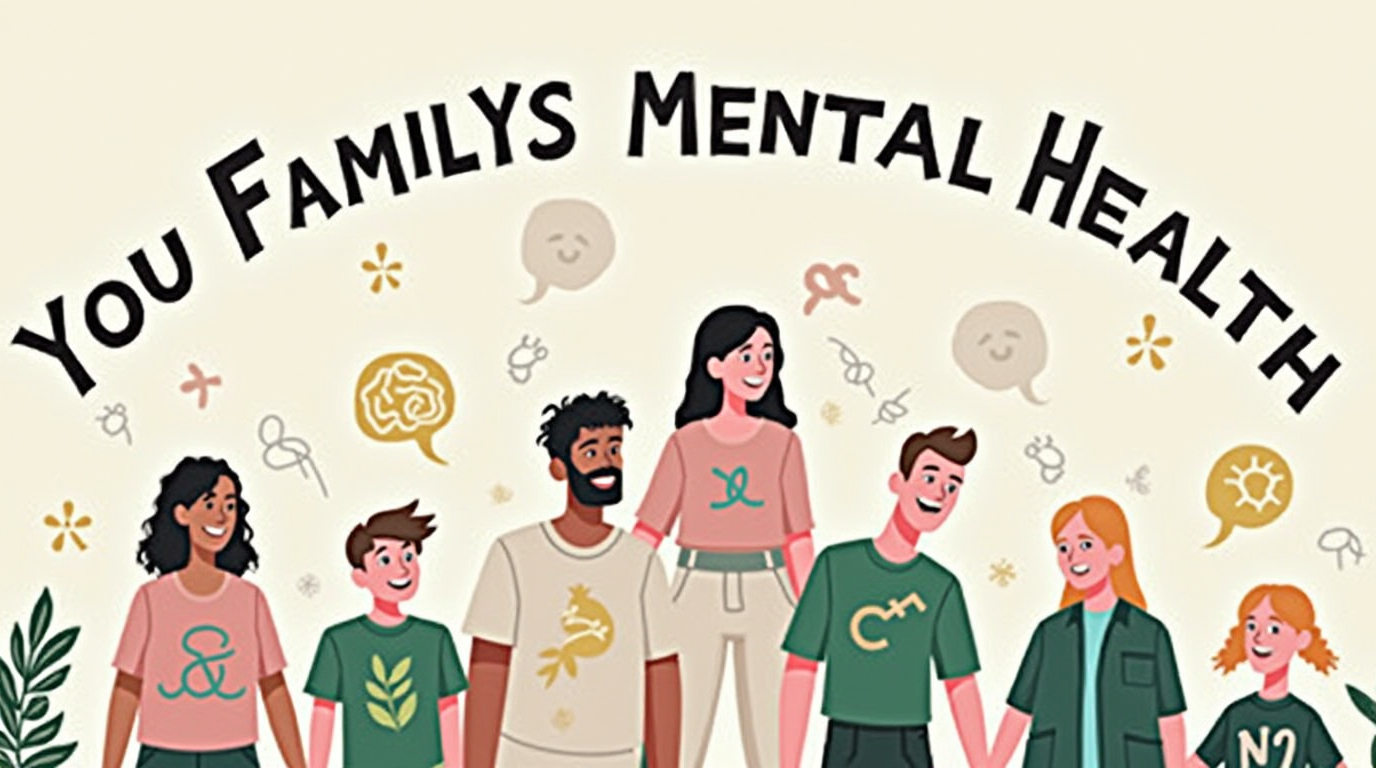Supporting your family’s mental health is a collaborative effort, and it begins with understanding that everyone’s well-being is connected. Mental health issues can impact individuals within a family unit, but they also have the potential to affect the family dynamic as a whole. By working together, families can create a supportive environment that fosters resilience and promotes positive mental health. Here’s how you can embark on this journey as a united front.
Open communication is key. Encourage family members to express their feelings and concerns without fear of judgment. Create a safe space for conversations about emotions, challenges, and personal struggles. Regular family meetings can provide a structured platform for these discussions, allowing everyone to share their experiences and support one another. Remember, active listening is vital to make each family member feel valued and understood.
Be attentive to any changes in behavior or mood among your family members. Sometimes, mental health issues manifest as subtle shifts in behavior, so being observant is crucial. If you notice signs of distress, reach out and initiate a conversation. Early intervention can make a significant difference, whether it’s offering a listening ear or seeking professional guidance.
Promote healthy coping mechanisms and self-care practices within your family. Encourage activities that reduce stress and enhance well-being, such as regular exercise, mindfulness practices, or engaging in hobbies. Family activities like game nights, outdoor adventures, or shared creative projects can provide opportunities for bonding and stress relief while strengthening your family’s resilience.
Educate your family about mental health to reduce stigma and foster understanding. Learn about common mental health challenges, their signs and symptoms, and available support resources. By knowing more, you can better recognize when a family member needs help and provide appropriate support.
Lead by example and prioritize your own mental health. Demonstrate healthy coping strategies, seek support when needed, and practice self-care consistently. Children and other family members often learn by observing, so showing that you value your well-being encourages them to do the same.
Consider seeking professional support if you or a family member is struggling with mental health concerns. Therapists and counselors can offer valuable guidance and tools to navigate these challenges. Family therapy can be particularly beneficial in addressing dynamics and improving communication within the family unit.
Supporting your family’s mental health is an ongoing process that requires commitment and compassion. By fostering an environment of open communication, awareness, and mutual support, you can help your family members thrive and build resilience for a healthier future together. Remember, taking care of mental health is just as important as nurturing physical health, and it’s a journey you can undertake as a loving and supportive family unit.
